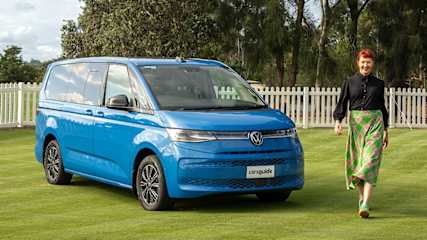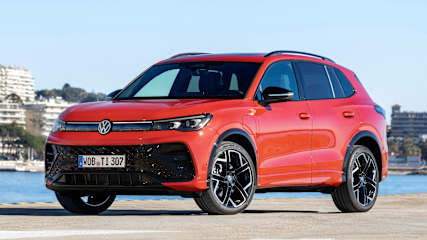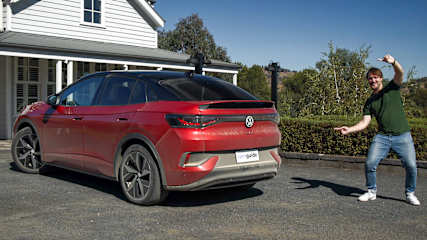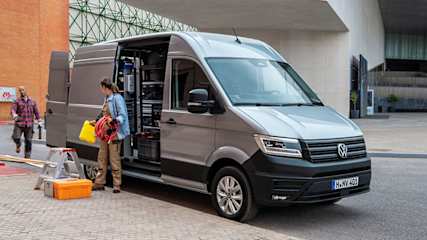2025 Volkswagen Caddy and Crafter vans updated for Australia with improved safety and tech: Can they still keep the Ford Transit, Mercedes-Benz Sprinter and Peugeot Partner at bay?
By Samuel Irvine · 09 Apr 2025
Volkswagen has released pricing and specifications for its updated Caddy and Crafter commercial vans, which will arrive across dealerships nationwide later this year.Kicking off with the Caddy Cargo, VW has increased the entry price by a modest $235 to $41,225, before on-road costs, for the short-wheelbase manual version.In return, VW has improved on its tech and safety credentials by standardising a digital driver’s display, a 10-inch multimedia display, front and rear parking sensors, power-folding adjustable and heated mirrors, tyre pressure monitoring, central locking with keyless entry, USB-C ports and autonomous emergency braking (AEB).The higher-grade Maxi and California variants, which now start at $43,225 and $62,225, respectively (both at before on-road costs) add park assist with distance control, adaptive cruise control, lane change assist, side assist with blind-spot monitoring and rear cross-traffic alert.Three powertrains are available for the base-grade Caddy Cargo, which includes two diesel and one petrol engine. They deliver outputs of 75kW/280Nm on the TDI280 diesel, 90kW/320Nm on the TDI320 diesel and 85kW/220Nm on the TSI220 petrol.Customers can opt for a six-speed manual or a seven-speed dual-clutch automatic transmission depending on their powertrain preference.As before, the Caddy is available in short- and long-wheelbase versions with alternating seating, trim and powertrain configurations, while the Caddy California remains the five-seat, range-topping lifestyle option.Moving to the Crafter, VW has taken the more substantial step of discontinuing the TDI340 diesel engine in favour of the more powerful TDI410, which now serves as the the standard option across the range. It delivers 130kW/410Nm, 27kW/70Nm more than the TDI340, though the entry price has risen by $9100.So, the range now kicks off at $69,100, before on-road costs, for the long-wheelbase Crafter 35 Single Cab Chassis, which packs an eight-speed automatic transmission and front-wheel drive.VW has mirrored similar upgrades on the larger Crafter light commercial van, adding standard forward collision warning, AEB with cyclist and pedestrian detection, lane keep assist, travel assist, blind-spot monitoring and adaptive cruise control.Additionally, there is a digital driver’s display, a larger 10.4-inch multimedia display, standard wireless charging and USB-C ports, while the gear shifter and parking brake have been exchanged for electronic units, freeing up room in the centre console.Visually, the Crafter also picks up a new front bumper and VW badging, bringing it into line with the rest of the brand’s range.As before, the Crafter remains available in medium- (MWB), long- and long-wheelbase with overhang (LWO) guises with differing powertrain and seating configurations. It comes in single cab chassis, dual cab chassis, van and Kampervan body styles.In addition to the upgraded Caddy and Crafter, VW has also confirmed the all-new VW Transporter, which is built on the same platform as the popular Ford Transit Custom, will arrive in Australia in diesel, plug-in hybrid and electric guises from Q3 this year.As of March 2025, VW has sold 239 Caddys, an increase of 42.9 per cent on the previous year as it furthers the gap to its Peugeot Partner and Renault Kangoo rivals. The Crafter hasn't fared so well, with sales down 72.7 per cent year-on-year from 198 units to 54. It remains outpaced by the Ford Transit, LDV Deliver 9 and Mercedes-Benz Sprinter.
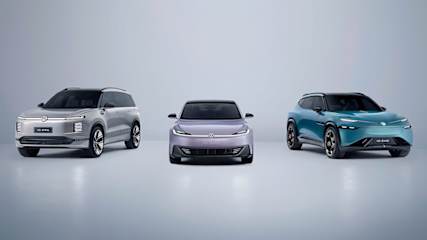
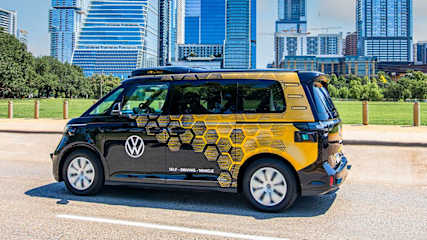
.jpg)
